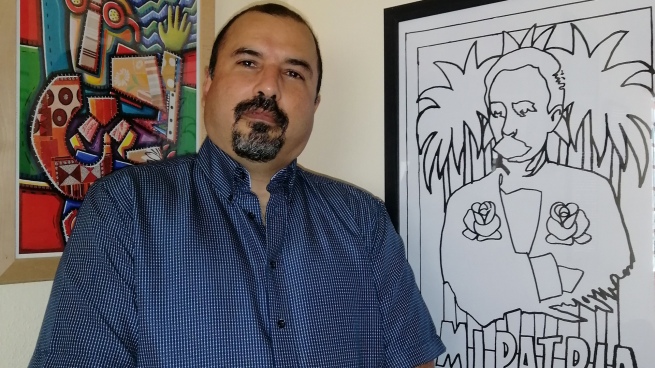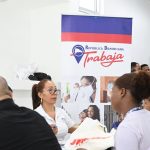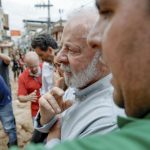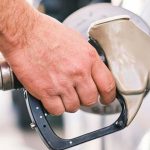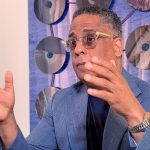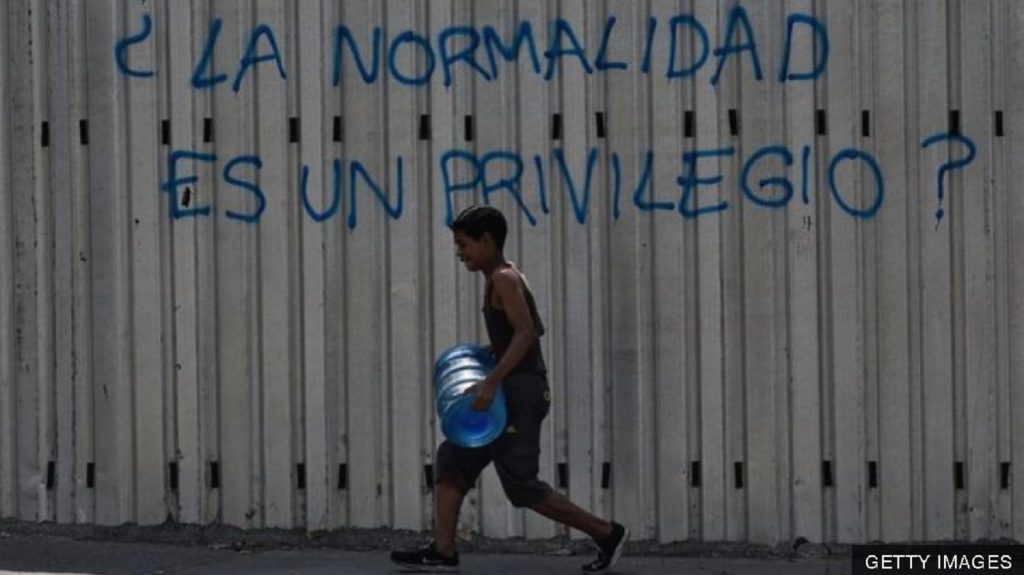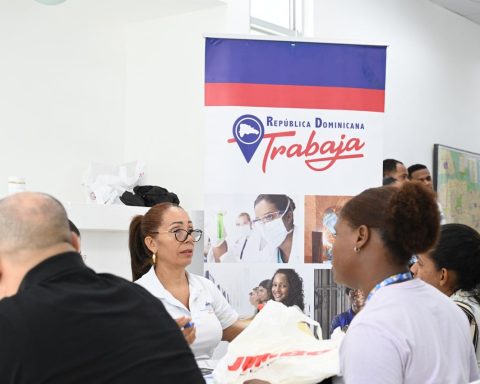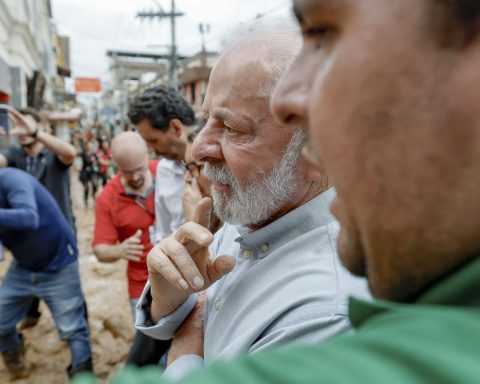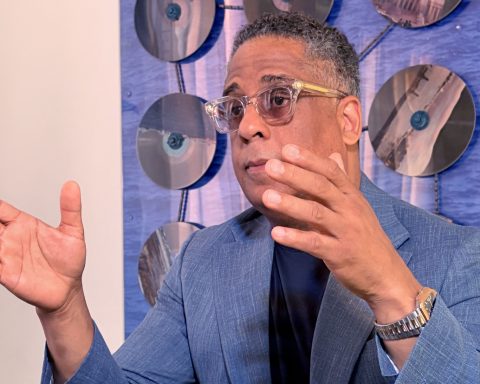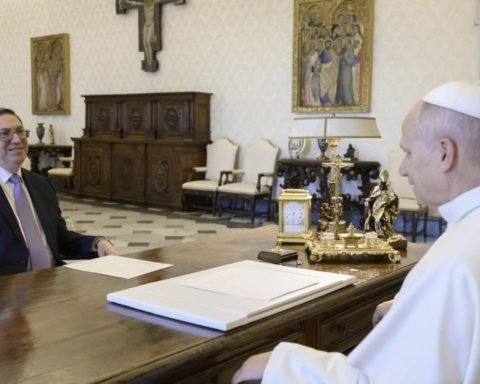The Cuban government must “try to fix the economy and attend to the demands of the Cubans as much as possible”, since “that is what is really in its hands”, while the “blockade, US policy and It is better to consider the cave sectors of Miami as constant factors,” analyzed Cuban political scientist and jurist Roberto Yepe in a telephone interview with Télam from the Aldabó neighborhood, on the outskirts of Havana, on the anniversary of the protests that took place this Monday. began in San Antonio de los Baños on July 11, 2021.
Yepe defined these demonstrations as “a quite unprecedented event” for the recent history of the island, because it was a process that “emerged really very quickly and without implying a value judgment of any kind, it must be recognized that it ended quite quickly” , while reviewing the demands expressed in the streets, he said that the main demand was linked to the economy and is still valid, given that “people in Cuba urgently need results in economic matters,” he reiterated.
In dialogue from his place of residence, in the Boyeros municipality of the Cuban capital, Yepe also analyzed the relationship between Washington and Havana, a subject he studied at length and on which he became a specialist, which led him to conclude that the The Miguel Díaz-Canel administration must prioritize “what is really in its hands” to improve the economic situation, since Cuba will continue to coexist for years with the US blockade and the intransigent sectors of Miami “until we can have another one again (Barack) Obama, but it seems more likely that we will first have another (Donald) Trump.”
Yepe graduated in International Political Relations and Law, has a master’s degree in business administration and was a professor at the Institute of International Relations of Cuba and at the Diplomatic Academy of El Salvador, where diplomats from both countries are trained -a similar space to the Foreign Service Institute (Isen) of Argentina-; She has been writing articles for local and international media for a long time while maintaining his own blog.
On a personal level, Argentina has an important presence in his biography because his mother, the poet of Greek descent Basilia Papastamatíu, was born in Buenos Aires although in 1969 she would settle in Havana, a story that left Yepe with a special affection for him. native country of the woman who gave birth to him, which he described as “endearing” after inevitably associating it with Che, Maradona, Gardel and with “the alfajores, that marvel that you invented”.

-Télam: What is your balance of the year since the July 2021 protests?
-Roberto Yepe: They were unprecedented events, not at all unusual in Cuba, because there really was a protest, and along with the protest there were also riots or criminal elements that took advantage of the situation. There was also a peaceful, genuine protest. I remember that the Cuban president (by Miguel Díaz-Canel) recognized him immediately at the time, during the initial speeches, when he started in San Antonio de los Baños. On that date in Cuba a perfect storm occurred. A combination of discontent from many years of economic crisis that at the same time coincided with a moment when it seemed that the pandemic was getting out of control. And all this is combined with the fact that emigration was closed with the pandemic. That accumulation of circumstances explains what happened. There was a fear in economic matters, due to many years of immobility, of bad decisions. This explosion of discontent was also stimulated by social networks, with phenomena that we know from around the world. For Cuba it was a quite unprecedented event, which emerged very quickly and also -and without this implying a value judgment of any kind- it ended quite quickly.
-T: It wasn’t the Arab spring, let’s say.
-RY: That does not mean in any way that there are no important social tensions right now, because many of the underlying issues that caused July 11 remain. Today in Cuba the pandemic is quite controlled, it is the only country in Latin America that created five of its own vaccines. And currently the immigration escape route is working. They are elements that loosen tension. But a substantive issue is above all the economic crisis.
-T: What are the main problems of this crisis?
-RY: The internal problems, the insufficiencies or the errors and problems of origin of the Cuban economic system, plus the US blockade, which is an undeniable reality, which has lasted more than 60 years, has no historical parallels in the world, has intensified a lot. with the Trump administration and which the Biden administration did not change in the slightest. With the novelties that Trump introduced to further strengthen the blockade, a situation of harassment was created, with the persecution of any ship that arrived in Cuba to bring food or fuel. That comes from the year ’95, with the Torricelli law. In the midst of the pandemic, there was persecution of any Cuban operation to bring materials, oxygen, medicines or medical supplies. The blockade is an economic fence that aims to make the Cuban political system collapse in the worst possible way. Let it work as a warning for all times, that adopting an independent path from the US has a very high price, priceless. The blockade is something that Cuba already has to deal with, unfortunately, as a constant factor. On the other hand, I am aware and I agree that in the official discourse, in the official Cuban media, there is a use and perhaps an abuse of putting the blockade as the cause of any problem. That makes the denunciation of this phenomenon, which is real, lose effectiveness and credibility.

-T: In the Obama period, John Kerry was for a time as Secretary of State, an Irishman and a Catholic, as was Biden. And it is at that moment that Pope Francis travels to the two countries and a historic thawing of relations between the US and Cuba begins. What was all that?
-RY: It was a very short-lived thaw, unfortunately. It was announced in December 2014 and lasted until Obama’s term ended in January 2017. Two years and a little more. During that brief period the Cuban economy became quite lively. Exchanges of all kinds -scientific, technological, cultural- increased tremendously. And the issue of emigration was ordered a lot. Unfortunately, the current government (of the US), although the president (by Biden) has been Obama’s vice president, has not moved anything to resume all that.
-T: Did the political weight of the Cuban community in Florida influence this situation?
-RY: It is an important factor but I want to say that it has not been scientifically proven that the Cubans who advocate recrudescence and being hostile towards Cuba are electoral determinants. In fact, Obama always won the elections in Florida and he won it with a different approach. That interpretation is very interested, very convenient for a good manipulator.

-T: Cubans study the US a lot and for obvious reasons the US also studies and is very attentive to Cuba. Much has been said about the 90 miles that separate the two countries. How do you analyze that relationship, almost intimate enemies?
-RY: It is a very complex relationship of political adversaries today, but between the two societies it is a much deeper relationship than that. It’s like a love-hate relationship, no doubt, too. And it cannot be ignored that there are more than a million Cubans or of Cuban origin living in the United States. So, undoubtedly, there is an interrelationship, a social interdependence.
-T: Did Cuba become a mono-production economy focused on services, particularly tourism? Because that economic structure was very vulnerable to the pandemic.
-RY: Yes, the pandemic brutally affected tourism, which is an important sector, although I do not believe -and this is perhaps a minority opinion- that it is strategically good for Cuba. But I wouldn’t say that the economy is as monoproductive as perhaps it once was with sugar. There is an important production of nickel, which has had problems, but it is also a very important source of income. There is diversification in some sectors that are more or less competitive, such as the significant export of medicines. Cuba is the only Latin American country that achieved indigenous vaccines against Covid-19, but in general these factors are not enough to get the Cuban economy out of the tourism crisis. Above all, the pandemic had a very negative impact because it is an important source of income for people: in that sense it had a very, very negative impact. Although if you asked me my preference, I would prefer to direct the economy to activities that offer more added value, greater industrial, productive, material development, so that tourism has a much lower relative percentage weight of GDP. The problem with the Cuban economy is that it is in a comprehensive systemic crisis.
“The best portrait and the best interpretation of the protests was made by Padura”
For the political scientist and jurist Roberto Yepe, “the best portrait and the best interpretation of July 11 was made by (the Cuban writer Leonardo) Padura, right in the heat of the events“.
He was referring to “A Scream”, a text about last year’s protests that he said he had reread before granting the interview with Télam and that he defined as an article that “maintains total validity.”
Mentioning the author of the novel “The Man Who Loved Dogs,” Yepe insisted that the Cuban state must prioritize the search for answers to social demands linked to the economy.
At that point, he stated that the coexistence between the state and the private sector “has taken a long time to implement” and criticized the use of the expression “non-state sector” in the regulations on economic activity to refer to private undertakings.
“That denotes a resistance to the private. And although measures have been adopted in Cuba, because dozens and hundreds of MiPymes are approved every day, the practical effect of that is still not seen, because most of these companies already existed: before, from euphemistically, they were called self-employed workers,” he observed.
Yepe, who writes for the OnCuba portal, said on the other hand that he did not want to see the film “La Red Wasp”, by French filmmaker Olivier Assayas, in which the story of the five Cubans who pretended to emigrate is narrated with fictional resources. to the United States to warn the island about the actions of “extremist sectors based in Florida that have dedicated themselves to terrorism.”
“Many of us participated in one way or another in seeking and asking for their release, because it really was fair, it was a just cause,” he told Télam, and remarked that the strategy of planting explosives in Cuban hotels was planned by Luis Posada Carriles and Orlando Bosch, whom he ranked among “the greatest terrorists in the Western Hemisphere.”
“Fortunately, there were not many fatalities, but there is the case of Favio (Di Celmo), an Italian tourist who lost his life and whose father dedicated his entire life, until his death a few years ago, to denouncing these kinds of events,” he remembered.

